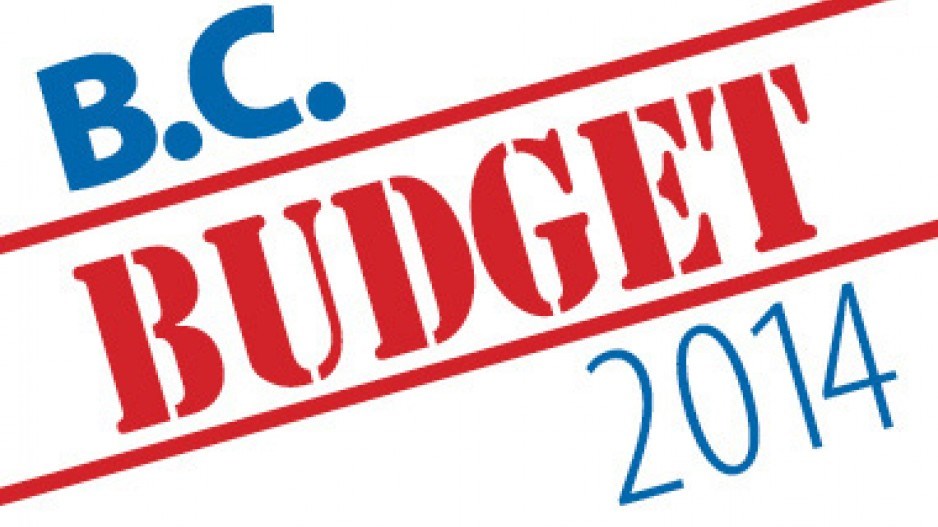British Columbia Finance Minister Mike de Jong presented a budget that contained little in the way of policy, spending or taxation changes, but introduced a long-awaited tax model for the province's nascent liquified natural gas sector.
"I call this a Triple-B budget," de Jong said. "A boring, balanced budget."
The government is forecasting to end the 2013-14 fiscal year with a surplus of $175 million, and is predicting that surplus will grow to $184 million in 2014-15, $206 million in 2015-16 and $451 million in 2016-17.
The province is currently $61 billion in debt.
Spending increases include $243 million for Community Living B.C. over three years to maintain services already offered to people with disabilities; $15 million over three years to the Ministry of Children and Family Development for young people with special needs; $15 million over three years for the RCMP for increased policing costs; and $6 million for legal aid.
B.C. residents with children under six will receive an early childhood tax benefit worth $55 per month per child starting April 1, 2015. This benefit, which will cost $146 million per year, was announced in 2013 but was delayed. British Columbians will also pay $72 more per year for Medical Services Plan premiums.
The government has also raised the cost of a house that first-time homebuyers can purchase and still be exempted from the property transfer tax, from $425,000 to $475,000.
The scientific research and experimental development tax credit, which benefits manufacturers who do research, has been extended for three years. While both the federal and provincial governments have eliminated a preferential corporate tax rate for credit unions, the provincial government will start phasing out the preferential rate in 2016 rather than in 2013.
B.C. has followed the federal government's lead in upping the tax on cigarettes. Smokers will pay $0.72 more per pack.
The budget also plans for $29 million over three years to develop the LNG industry and $9 million over three years for environmental assessments for LNG plants, pipelines, mining and other resource projects.
B.C. has been negotiating with potential LNG proponents to create a tax model that would feed government coffers while making B.C.'s industry competitive with other jurisdictions.
In its 2014 budget, the government introduced a two-tier tax model for the industry. LNG operators would pay 1.5% after their plant begins operation, and until they have recouped the initial capital investment of building the facility. After that, operators will be taxed a tier-two rate of up to 7%.
De Jong said the full details of the tax are still being worked out, including the rates. He will introduce the legislation to create the tax framework in the fall of 2014.
Because the second tier tax rate won't come into effect until several years after the plants begin operation, and the facilities are still years away from being built, it could be several years until the government begins to see meaningful tax revenues, de Jong said.
The first-tier tax paid in the first three years of a plant's operation can also be used as a credit against the second-tier rate in years four and five.
In June 2013, the government had to revise its budget in the face of disappointing economic growth and lower than expected tax revenue. Forecasted growth of 1.6% was lowered to 1.4%.
For this budget, the government is forecasting B.C.'s economy will grow 2%.
"We talk about risks to the forecast and how that may play out going forward ... we continue to balance essentially on a razor's edge when you consider a $44 billion plus budget," de Jong said. "There are a number of external factors that can have an impact."
Indicators like retail sales, low unemployment compared with the national average and growing exports are positive signs for B.C.'s economy, de Jong said. However, the province's sluggish job creation and flatlined inflation rate continue to be a concern.




